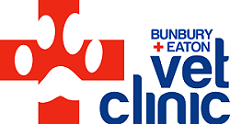 Unless you’ve been hiding under a rock, you would have heard about the coronavirus outbreak from China.
Unless you’ve been hiding under a rock, you would have heard about the coronavirus outbreak from China.
As with so many evolving situations, there is a lot of misinformation and attention-grabbing headlines in the media.
The World Small Animal Veterinary Association has published an advisory document to try to give accurate, up to date information and answers to frequently asked questions.
This document can be found at https://wsava.org/wp-content/uploads/2020/02/nCOV_WSAVA-Advisory-Document-final-05.02.2020.pdf and I’ve included the FAQ section below.
There are a couple of points which I think are critical to know at this point:
- There are many forms of coronavirus in animals. The one we occasionally see in Australia has been around for a long time, and normally just causes gastroenteritis. The vaccine against this form of coronavirus is unlikely to give any protection against the new strain.
- There is currently no evidence that dogs and cats can be infected with the new strain of coronavirus.
- We don’t know a huge amount about this disease yet, so, for now, we would recommend avoiding contact with pets for anyone who may have been exposed to the new coronavirus.
Frequently Asked Questions:
Can 2019-nCoV infect domestic animals?
Currently, there is no evidence that pets or other domestic animals can be infected with this new coronavirus. Additionally, there is currently no evidence that pets or other domestic animals might be a source of infection to people with the new coronavirus. This is a rapidly evolving situation and information will be updated as it becomes available.
Should I avoid contact with pets or other animals if I am sick?
Do not handle pets or other animals while sick. Although there have not been reports of pets or other animals becoming sick with 2019-nCoV, several types of coronaviruses can cause illness in animals and spread between animals and people. Until we know more, avoid contact with animals and wear a facemask if you must be around animals or care for a pet in order to protect the pet from the possibility of disease transmission.
What should I do if my pet or other animal becomes ill and was around a person with novel coronavirus?
If your pet or other animal becomes ill, call your veterinarian to let them know that you are bringing a sick pet that was exposed to a person with the new coronavirus. Do not take the animal to a veterinary clinic until you have had a discussion with clinic staff. Tell them about any contact the animal may have had with someone with 2019-nCoV infection.
If my pet or other animal has been in contact with someone who is sick, can they spread the disease to other people?
We do not yet know if animals can get infected. We also do not know if they could get sick from this new coronavirus. Currently, there is no evidence that pets or other domestic animals can be infected with this new coronavirus. Additionally, there is currently no evidence that pets or other domestic animals might be a source of infection to people with the new coronavirus. This is a rapidly evolving situation and information will be updated as it becomes available.
What are the concerns regarding pets that have been in contact with people infected with this virus?
While this virus seems to have emerged from an animal source, it is now spreading from person-to-person. Person-to-person spread is thought to occur mainly via respiratory droplets produced when an infected person coughs or sneezes. At this time, it’s unclear how easily or sustainably this virus is spreading between people. Importantly, there is no data to date that dogs and cats can become infected with 2019-nCoV
What should be done with animals in areas where the virus is active?
Currently there is no evidence that pets or other domestic animals can be infected with this new coronavirus. This is a rapidly evolving situation and information will be updated as it becomes available. Although there have not been reports of pets or other animals becoming sick with 2019- nCoV, several types of coronaviruses can cause illness in animals and spread between animals and people. Until we know more, avoid contact with animals and wear a facemask if you must be around animals or care for a pet. However, people diagnosed with 2019-nCoV should stay away from pets to help protect the pet from the potential for disease spread.
Should veterinarians start to vaccinate dogs against canine coronavirus because of the risk of 2019-nCoV?
The canine coronavirus vaccines available in some global markets are intended to protect against enteric coronavirus infection and are NOT licensed for protection against respiratory infections. Veterinarians should NOT use such vaccines in the face of the current outbreak thinking that there may be some form of cross-protection against 2019-nCoV. There is absolutely no evidence that vaccinating dogs with the commercially available vaccines will provide cross-protection against the infection by the 2019-nCoV since the enteric and respiratory viruses are distinctly different variants of coronavirus. No vaccines are currently available in any market for respiratory coronavirus infection in the dog. [Information from the WSAVA Vaccination Guidelines Group].
